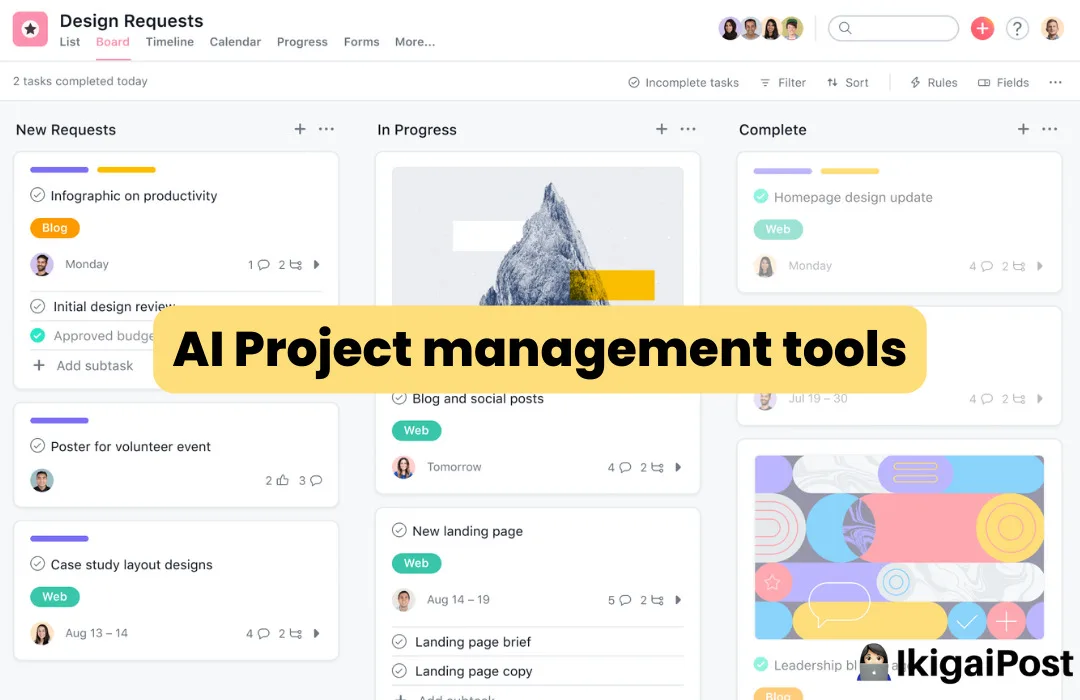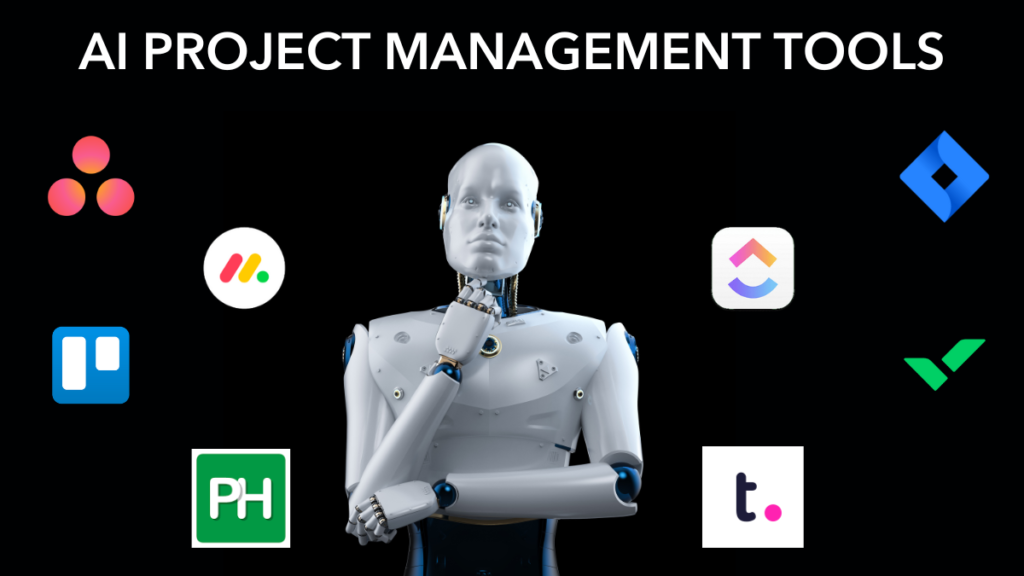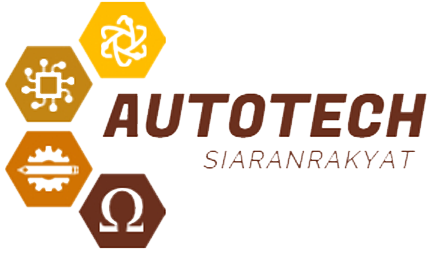AI tools for project management are revolutionizing how projects are planned, executed, and delivered. These intelligent systems leverage predictive analytics, automation, and advanced algorithms to optimize resource allocation, mitigate risks, and enhance collaboration, ultimately leading to improved project outcomes and increased efficiency. This exploration delves into the functionalities, benefits, and challenges associated with integrating AI into modern project management strategies.
From automating mundane tasks to forecasting potential roadblocks, AI offers a transformative approach to project management. We will examine various AI-powered tools, comparing their strengths and weaknesses to help you choose the best fit for your needs. We will also discuss the ethical considerations and potential limitations of integrating AI into your project workflows.
Defining AI Project Management Tools

AI-powered project management tools represent a significant evolution in project management methodologies. They leverage artificial intelligence to automate tasks, analyze data, and predict outcomes, ultimately enhancing efficiency and effectiveness throughout the project lifecycle. These tools go beyond traditional methods by incorporating intelligent features that significantly reduce manual effort and improve decision-making.
AI project management tools are software applications that utilize machine learning algorithms and other AI techniques to assist in planning, executing, monitoring, and controlling projects. Unlike traditional project management software, which primarily relies on manual input and basic calculations, AI-powered tools offer a proactive and predictive approach. This allows project managers to anticipate potential problems, optimize resource allocation, and make data-driven decisions to achieve project goals more effectively.
Key Features Differentiating AI Project Management Tools from Traditional Methods
Traditional project management tools often require significant manual intervention for tasks such as scheduling, resource allocation, and risk assessment. AI tools, however, automate many of these processes, freeing up project managers to focus on strategic aspects of the project. For instance, AI can automatically generate project schedules based on task dependencies and resource availability, significantly reducing the time and effort required for manual planning. Furthermore, AI algorithms can analyze historical project data to identify patterns and predict potential delays or risks, allowing for proactive mitigation strategies. This predictive capability is a key differentiator, offering a level of insight unavailable in traditional methods. Another key difference is the enhanced ability to analyze large datasets and identify trends that might be missed through manual review.
Types of AI Functionalities Integrated into AI Project Management Tools
A range of AI functionalities are integrated into these tools to enhance project management capabilities. These functionalities significantly improve efficiency and accuracy compared to traditional manual methods.
Predictive analytics is a core functionality. For example, an AI-powered tool might analyze historical data on similar projects to predict the likelihood of delays based on factors such as team size, budget, and complexity. This allows project managers to proactively adjust plans and allocate resources to mitigate potential risks. Another example is the prediction of resource requirements based on project scope and historical data.
Automation is another crucial feature. AI can automate repetitive tasks such as assigning tasks, sending reminders, and generating reports, freeing up project managers to focus on more strategic activities. For instance, an AI tool could automatically assign tasks to team members based on their skills and availability, ensuring optimal resource utilization. This automation minimizes human error and streamlines workflows.
Beyond predictive analytics and automation, many AI project management tools incorporate natural language processing (NLP) to facilitate communication and collaboration within project teams. This allows for more efficient information sharing and decision-making. For example, a tool could automatically summarize project updates from various team members, providing a concise overview for the project manager. Finally, some tools utilize machine learning to continuously improve their performance over time, learning from past projects and adapting to changing project requirements. This continuous learning ensures that the tool’s recommendations become increasingly accurate and relevant.
Benefits of Utilizing AI in Project Management

Integrating Artificial Intelligence (AI) into project management offers significant advantages, streamlining workflows and enhancing decision-making across all project phases. AI’s ability to process vast amounts of data quickly and accurately allows for more efficient planning, improved resource allocation, and proactive risk management, ultimately leading to better project outcomes and increased profitability.
AI tools are transforming how projects are managed, offering tangible benefits that extend beyond simple automation. The enhanced capabilities provided by AI translate to improved project predictability, reduced costs, and increased stakeholder satisfaction.
AI’s Enhancement of Project Planning and Scheduling
AI significantly improves project planning and scheduling by leveraging predictive analytics and machine learning algorithms. For example, AI-powered tools can analyze historical project data, identifying patterns and trends to forecast task durations more accurately. This allows project managers to create more realistic schedules, proactively adjusting timelines based on potential delays or resource constraints. These tools can also optimize task sequencing, identifying the most efficient order of operations to minimize delays and maximize productivity. Consider a construction project where AI analyzes weather patterns and material delivery schedules to predict potential delays, allowing for proactive adjustments to the project timeline.
AI’s Impact on Resource Allocation and Optimization, AI tools for project management
AI optimizes resource allocation by analyzing project requirements, skill sets of team members, and available resources. It can identify potential bottlenecks and suggest optimal resource assignments to maximize efficiency and minimize conflicts. For instance, an AI-powered tool might identify a team member with specific expertise who is underutilized and reassign them to a critical task, preventing delays. Furthermore, AI can dynamically adjust resource allocation based on real-time project progress, ensuring that resources are always deployed where they are most needed. This dynamic allocation ensures efficient utilization of resources and minimizes wasted time and effort. Imagine a software development project where AI identifies a surge in testing requirements and automatically allocates additional testers to meet the deadlines.
AI’s Enhancement of Risk Management and Mitigation Strategies
AI significantly enhances risk management by identifying potential risks earlier and more accurately. By analyzing vast amounts of data from various sources, AI can identify patterns and anomalies that might indicate potential problems. For example, an AI-powered system might detect a significant increase in the number of reported bugs in a software development project, indicating a potential risk to the project timeline. This early warning allows project managers to take proactive steps to mitigate the risk, preventing it from escalating into a major problem. AI can also suggest mitigation strategies based on its analysis of historical data and best practices. This proactive approach minimizes disruptions and helps to keep projects on track. Consider a manufacturing project where AI detects a potential supply chain disruption based on market trends and adjusts procurement strategies accordingly, ensuring uninterrupted production.
AI-Driven Task Management and Automation: AI Tools For Project Management
AI is revolutionizing project management by automating repetitive tasks, optimizing resource allocation, and providing real-time insights into project progress. This allows project managers to focus on strategic decision-making and higher-level tasks, ultimately leading to increased efficiency and improved project outcomes. The integration of AI into task management offers significant advantages in terms of speed, accuracy, and overall project success.
AI automates repetitive tasks in project management by leveraging machine learning algorithms to identify and execute routine actions. This includes tasks like data entry, scheduling meetings, generating reports, and flagging potential risks based on established patterns. By automating these time-consuming processes, AI frees up valuable time for project managers and team members to focus on more complex and strategic aspects of the project. For instance, an AI system could automatically update project timelines based on completed tasks or identify potential delays based on historical data and current task progress. This proactive approach minimizes the risk of project slippage and ensures that projects remain on track.
AI-Powered Task Assignment and Prioritization Methods
AI algorithms analyze various factors such as team member skills, availability, and task dependencies to optimize task assignment. This ensures that the right people are assigned to the right tasks, maximizing efficiency and productivity. Prioritization is achieved through sophisticated algorithms that consider deadlines, dependencies, and risk levels, ensuring that critical tasks are addressed first. For example, an AI-powered system might identify a critical path task at risk of delay and automatically re-allocate resources or adjust the schedule to mitigate the risk. This data-driven approach leads to better resource utilization and more effective project execution.
AI-Facilitated Real-Time Progress Tracking and Reporting
AI tools provide real-time visibility into project progress by automatically collecting and analyzing data from various sources, including task completion status, resource utilization, and potential roadblocks. This enables project managers to monitor progress continuously and identify potential issues early on, allowing for timely intervention and mitigation. Furthermore, AI can automatically generate comprehensive reports, summarizing project status, identifying areas of concern, and providing valuable insights for improved decision-making. This continuous monitoring and reporting capability provides a significant advantage over traditional project management methods, where reporting often lags and valuable time is lost in identifying and addressing issues. For instance, an AI system might detect a trend of tasks consistently exceeding their estimated completion times, suggesting the need for adjustments to task estimations or team allocation.
Integration with Existing Project Management Software

The power of AI in project management is significantly amplified when integrated seamlessly with existing platforms. This integration avoids the disruption of established workflows and allows organizations to leverage AI’s capabilities within their familiar project management environments. Instead of replacing existing software, AI tools often act as enhancements, adding intelligent features to boost efficiency and productivity.
AI tools enhance the functionalities of popular project management software by automating repetitive tasks, providing predictive analytics, and offering insightful recommendations based on project data. This intelligent augmentation streamlines processes, improves accuracy, and ultimately frees up valuable time for project managers and teams to focus on strategic initiatives and higher-value work. For example, AI can integrate with platforms like Asana, Trello, or Monday.com to automatically prioritize tasks based on urgency and dependencies, predict potential delays, and suggest optimal resource allocation.
AI-Powered Enhancements to Existing Project Management Software
AI integration significantly improves the capabilities of existing project management software in several key areas. For instance, predictive analytics can forecast potential project delays based on historical data and current progress, allowing for proactive intervention. Similarly, AI-powered risk management tools can identify and assess potential risks with greater accuracy than manual methods. Furthermore, AI can automate report generation, saving time and ensuring consistent reporting. Finally, intelligent assistants can answer project-related questions and provide quick access to relevant information, streamlining communication and improving team collaboration.
Benefits of Integrating AI into Existing Workflows
The integration of AI into existing project management workflows yields numerous benefits. Consider the following advantages:
- Increased Efficiency and Productivity: Automation of repetitive tasks frees up valuable time for project managers and team members to focus on strategic activities.
- Improved Accuracy and Reduced Errors: AI-powered tools minimize human error in tasks like scheduling, resource allocation, and risk assessment.
- Enhanced Predictive Capabilities: AI algorithms can analyze project data to predict potential delays and risks, allowing for proactive mitigation strategies.
- Better Resource Allocation: AI can optimize resource allocation by considering various factors such as skillsets, availability, and project deadlines.
- Streamlined Communication and Collaboration: AI-powered assistants can facilitate communication and knowledge sharing within project teams.
- Data-Driven Decision Making: AI provides valuable insights from project data, enabling better-informed decision-making.
- Faster Project Completion: By optimizing processes and improving efficiency, AI can contribute to faster project completion times.
In conclusion, the integration of AI into project management offers significant advantages, streamlining processes and improving decision-making. While challenges exist, the potential benefits—from enhanced productivity and reduced risks to improved collaboration and more accurate forecasting—are undeniable. As AI technology continues to evolve, its role in project management will only become more significant, shaping the future of how projects are conceived and delivered.
AI tools are revolutionizing project management, offering streamlined workflows and improved efficiency. However, as projects increasingly rely on cloud-based solutions, understanding the crucial aspects of Compliance in cloud computing becomes paramount. This ensures data security and regulatory adherence, ultimately bolstering the reliability and success of AI-powered project management strategies. Therefore, integrating compliance considerations into the AI project management workflow is vital.
AI tools are revolutionizing project management, offering streamlined workflows and enhanced collaboration. Data security and transparency are crucial aspects, which is why the secure infrastructure offered by Blockchain and cloud integration is becoming increasingly relevant. This integration ensures that AI-powered project management systems can leverage robust, secure data storage and processing, ultimately improving the reliability and efficiency of these tools.
